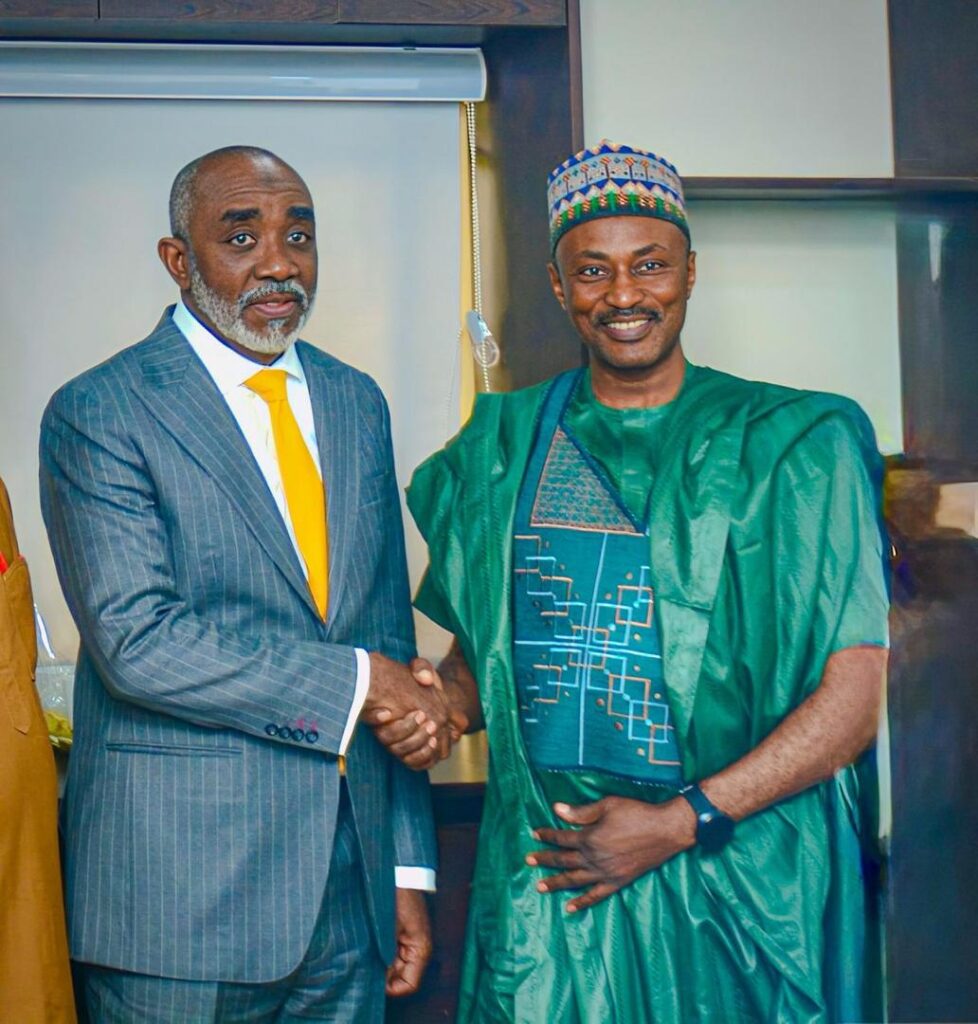…Says 150,000 hectares of land ready for sugarcane cultivation
From Atiku Sarki, Abuja
The Executive Secretary of the National Sugar Development Council (NSDC), Mr. Kamar Bakrin, has urged farmers and investors to take full advantage of the current opportunities in Nigeria’s sugar industry, describing the sector as ripe for large-scale investment.
Speaking during a courtesy visit by members of the All Farmers Association of Nigeria (AFAN) to the Council’s headquarters in Abuja, Bakrin said the nation’s continued reliance on sugar imports was economically unsustainable and must be reversed through strategic local production initiatives.
He revealed that the Nigerian sugar market is valued at over $2 billion, while the broader African market stands at $7 billion, with the continent’s supply deficit expected to reach 13 million tonnes by 2030.
“This is the right time to invest,” Bakrin declared. “Given Nigeria’s economic realities—especially foreign exchange challenges and rising global logistics costs—local production has become not only viable but highly profitable.”
To support this vision, the Council has identified a land bank of 150,000 hectares suitable for sugarcane cultivation. These lands, Bakrin explained, are located in secure regions with favourable climates, proximity to water sources, and the backing of host communities.
The Council plans to place at least 50,000 hectares under cane cultivation through a commercial outgrower initiative. Under this scheme, capable farmers with plots ranging from 50 to 200 hectares will be integrated into value chains around existing sugar estates in Numan, Bacita, Sunti, and Lafiagi.
Bakrin said the NSDC has developed a comprehensive strategy to de-risk investment in the sector. This includes access to the Nigeria Sugar Industry Development Fund (NSIDF), a five-year tax holiday for investors, and import duty waivers on essential processing equipment. He added that new investors will benefit from a 30% tax credit on infrastructure projects such as roads and irrigation within sugar-producing zones.
“Investors are not coming in blind—we are providing the tools, capital support, and strategic partnerships to ensure they succeed,” Bakrin stated.
He added that the Council will also assist with land clearing and lease facilitation with host communities, offer high-yield seedling varieties, provide input subsidies, and facilitate access to mechanisation and technical support from the Nigerian Sugar Institute.
Importantly, he said, investors will also enjoy guaranteed offtake agreements with established sugar processors.
Beyond refined sugar, Bakrin noted the value in sugarcane by-products such as ethanol, animal feed, biogas, bioelectricity, and bioplastics. These, he said, offer additional income streams that enhance both the profitability and sustainability of sugar investments.
Despite having 19 sugar-producing countries, Africa remains a net importer, he observed. However, Bakrin said the African Continental Free Trade Area (AfCFTA) presents a unique opportunity for Nigeria to position itself as a leading sugar exporter on the continent.
“With preferential trade access and strong policy backing, Nigeria can become the cost-leader in Africa’s sugar industry,” he said.
Bakrin reiterated the Council’s commitment to working with credible, well-resourced commercial farmers, particularly those with knowledge of modern farming practices and access to capital.
He stressed that revitalising the sugar industry is not merely a business opportunity but a national development agenda aimed at achieving self-sufficiency, creating jobs, and strengthening the country’s foreign exchange reserves.
“This is a national development imperative,” he said. “We are calling on AFAN and the broader private sector to partner with us to build a strong and competitive Nigerian sugar economy.”
On his part, AFAN President, Dr. Faruk Rabiu Mudi, welcomed the initiative and promised to mobilise his members to participate actively in the Council’s sugar production drive.
He acknowledged that the country’s current production figures fall short of national consumption levels and said the task of improving local output must be shared by all stakeholders.
“The sugar gap is not something the NSDC can close alone,” Mudi said. “We are ready to work hand-in-hand with the Council to strengthen Nigeria’s sugar value chain.”


